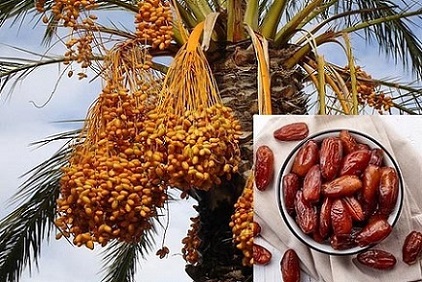Nikhil Prasad Fact checked by:Thailand Medical News Team Jul 18, 2024 9 months, 1 week, 1 day, 2 hours, 18 minutes ago
Cardiology Updates: Natural Solutions in Medicine
Diabetic cardiomyopathy, a heart condition linked to diabetes, affects millions worldwide. Despite advances in medical science, effective treatments remain elusive. This
Cardiology Updates news report highlights an exciting new study exploring a natural solution - Phoenix dactylifera, commonly known as the date palm.
 Extract From Date Palm Shows Promise Against Diabetic Cardiomyopathy
Study Details
Extract From Date Palm Shows Promise Against Diabetic Cardiomyopathy
Study Details
Scientists from the Health Biology Laboratory at Government College University, Faisalabad, and the Wellcome-Wolfson Institute for Experimental Medicine at Queen’s University, Belfast, investigated the effects of a methanolic extract of Phoenix dactylifera on diabetic cardiomyopathy in rats. The study was designed to assess whether this natural extract could offer cardioprotective benefits through its impact on glucolipid metabolism and cardiac remodeling.
Understanding Diabetic Cardiomyopathy
Diabetic cardiomyopathy (DCM) is a condition where diabetes leads to heart muscle dysfunction, independent of other cardiovascular risk factors like high blood pressure or coronary artery disease. It is characterized by issues such as ventricular dysfunction, fibrosis, and inflammation. The heart's inability to pump blood efficiently often leads to heart failure, making it a severe complication for many diabetic patients.
The Experiment
In this study, 16 male Wistar albino rats were divided into four groups:
-Healthy control group: Rats with no induced diabetes, receiving a standard diet.
-DCM control group: Diabetic rats receiving no treatment.
-DCM group treated with metformin: Diabetic rats treated with metformin, a common diabetes medication.
-DCM group treated with Phoenix dactylifera extract: Diabetic rats treated with the date palm extract.
The DCM groups were induced with diabetes using a high-fat diet and streptozotocin injections, which mimic the development of type 2 diabetes in humans. Over 25 days, the researchers monitored various health markers in the rats, including blood glucose levels, cholesterol, insulin levels, and heart function.
Promising Results
The results were striking. The Phoenix dactylifera extract significantly improved blood glucose levels, cholesterol, and insulin balance compared to the untreated DCM group. For instance, fasting blood glucose levels dropped to 110 mg/dL in the PD-treated group, compared to 301 mg/dL in the untreated DCM group. Similarly, total cholesterol levels were significantly reduced, highlighting the extract’s potential to manage diabetes and its complications.
Gene Expression and Heart Health
One of the most notable findings was the impact on gene expression related to insulin signaling and cardia
c health. The PD extract upregulated insulin signaling genes in pancreatic tissue and downregulated profibrotic genes in heart tissue. This suggests that the extract not only helps manage blood sugar levels but also protects heart tissue from fibrosis and inflammation.
Histological Findings
Histopathological analysis revealed that the structural integrity of both the pancreas and heart was preserved in the PD-treated group. This was a significant improvement compared to the severe damage observed in the untreated DCM group. The preserved structural integrity indicates the potential of Phoenix dactylifera extract to prevent the typical organ damage associated with diabetes.
Direct Impact on the Heart
Further in vitro studies demonstrated that p-coumaric acid, a component of the PD extract, directly inhibited fibrosis in human cardiac fibroblasts. This highlights the potential of the extract to directly protect the heart, beyond its metabolic benefits. The reduction in fibrosis is crucial, as fibrotic tissue in the heart can lead to stiffening and impaired function.
Why Phoenix Dactylifera?
Phoenix dactylifera, or the date palm, is rich in phenolics, flavonoids, and other bioactive compounds known for their antioxidant and anti-inflammatory properties. These compounds likely contribute to the extract's therapeutic effects. Dates have been consumed for centuries in various cultures, not only for their nutritional value but also for their medicinal properties.
Conclusion
This study suggests that Phoenix dactylifera extract could be a valuable natural therapy for managing diabetic cardiomyopathy. Its ability to improve glucolipid metabolism, protect pancreatic and heart tissue, and directly reduce cardiac fibrosis highlights its potential. The results open up possibilities for incorporating natural extracts into mainstream treatments for diabetes and its complications.
The study findings were published in the peer-reviewed journal: Cells.
https://www.mdpi.com/2073-4409/13/14/1196
For the latest
Cardiology Updates, keep logging on to Thailand Medical News.
Read Also:
https://www.thailandmedical.news/news/herbs-and-phytochemicals-randomized-clinical-trial-shows-that-extracts-of-date-palm-can-treat-cutaneous-warts
https://www.thailandmedical.news/news/herbs-and-phytochemicals-merits-of-angelica-sinensis-against-cardiovascular-and-cerebrovascular-diseases
